Interest Rates are rising. Should you be concerned?
Edited: 16/06/2022
On 16 June 2022, the US Federal Reserve raised its benchmark interest rate by 0.75% – the largest hike since 1994. This is on the back of a 0.5% hike in May 2022 and 0.25% in March 2022.
In the face of rising interest rates, how would it potentially affect you, and should you be concerned?
Keeping inflation in check
Central banks, such as the US Federal Reserve, the Bank of England, or the European Central Bank, seeks to keep inflation at 2% in the long run. Raising interest rates have traditionally been the main tool in controlling inflation. That is why we find inflation rates and interest rates tend to move in the same direction. As inflation rates rise and fall, corresponding changes in the central bank interest rates tends to follow in order to keep inflation in check.
The golden question usually, is how far should they go? Unfortunately, it takes time, sometimes up to 2 years, for the full effect of interest rate changes to be factored into the economy in order to achieve the desired results. What might be different this time round, is that with the recent Russian-Ukrainian war which has driven up fuel prices and in turn, the supply chain costs for our basic necessities. One may ask then, is this the right time for the Fed to be making a rate hike? Or is it a long overdue move?
Well, there are always 2 sides to a coin. We’ve been operating in a low interest rate environment since late 2008. Low interest rates keeps borrowing costs low, encourages the acquisition of assets and theoretically boosts the economic growth. However, low interest rates suppress the returns on savings and the incentive to save, and asset prices may be driven to unsustainably high prices due to the low costs of borrowing. Which then brings me to my next point.
Bond Prices will (or has) declined
If you have followed the flight to safety into bonds following the stock market declines at the end of 2021 and early 2022 on the back of rising tensions on the Russian-Ukrainian borders, you may have been at the end of a double whammy, especially if you are invested in longer-duration bonds.
Theoretically, interest rates and bond prices have an inverse relationship, in that when the cost of borrowing (interest rate) rises, bonds becomes less attractive and bond prices fall. In fact, the Bloomberg Aggregate Bond index, widely considered to be one of the best total bond market indices, has dipped more than 10% year-to-date of the time of writing, which has been unprecedented over that last 50 years. Many portfolio managers are now either seeking to shorten the duration on their bond portfolios or flocking to non market-correlated investments (NMCIs).
Cost of Borrowing is rising
Good news if you are a saver or a lender. After more than a decade of being penalised by rock-bottom interest rates, things are starting to look up. Bad news if you are currently laden with loans on variable interest rates – car loans, student loans, lines of credit, or most commonly home loans. Loan repayments are going to creep up and you’ll need to re-examine your cash-flow to see if you’re going to be able to keep up. If you are an empty-nester sitting on a huge property with space that you don’t really need and an ongoing mortgage to feed, given that the property prices have risen considerably over the course of the pandemic, maybe it’s worth a thought relocating into something more compact (hopefully fully paid) while freeing up liquidity for other priorities.
Prolonged periods of raised interest rates create dampens the economy
Higher interest rates means the cost of borrowing (such as mortgage loans, hire purchase, etc) will increase. This essentially means less cash or confidence for consumers to spend on other things. Over time, it may also effect the housing markets where demand for new housing may be dampened due to increased costs of housing loans, and may lead to property prices stagnating or even falling. In the process, existing home owners may feel poorer and again, consumption activities fall. Businesses may then feel the pressure to control price increases which then suppresses wage growth for the workers. Businesses will also find it expensive to borrow and invest, which may mean cutting back on jobs creation. We all know what happens when unemployment starts creeping up. Recession.
Well then, how should we navigate through these choppy waters? Let’s have a chat.
Important: The information and opinions in this article are for general information purposes only. They should not be relied on as professional financial advice. Readers should seek unbiased financial advice that is customised to their specific financial objectives, situations & needs. This advertisement or publication has not been reviewed by the Monetary Authority of Singapore.

Published By:
Winston Khoo Wei Sern
Helping people enjoy life and grow their income by managing their finances, insurance + investments
I believe in the art of keeping things simple, especially finances.
After more than a decade of working within the financial sector, I’ve learned the best way to approach life and finance is to enjoy everyday pleasures and to take easy steps to manage and grow finances – whether its insurance plans, finding a suitable mortgage loan, or putting together an investment portfolio.
With a degree in IT, a background in banking, and a passion for connecting with people, my approach to wealth management is equally personal, practical, and high-tech.
I believe in being honest and helpful at all times, and leveraging technology to streamline the process. I work with people on what they are comfortable with rather than pushing an agenda.
It comes down to helping people reach their financial goals, whether it’s buying a house, planning for retirement, making sure they’re protected from events beyond their control, getting into the property market, or making sure they protect their wealth.
While I’m not advising, you can find me taking photos, traveling, and appreciating the simple things on Instagram.

CONTACT US
- 150 Beach Road #12-01/08, Gateway West Singapore 189720
- +65 62221889
- +65 62221019
- feedback@fa.com.sg
